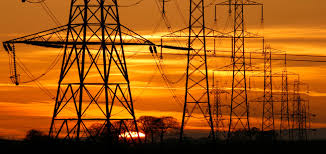KATHMANDU: The Nepal Electricity Authority (NEA) finds itself grappling with mounting challenges as it endeavors to manage the country’s electricity supply amidst a significant drop in hydropower production, limited imports from India, and soaring demand for electricity.
NEA’s records reveal a substantial shortfall of 3,051 MWh in electricity production to meet the nation’s total demand. Despite a demand of 38,619 MWh registered on Tuesday, the state-owned utility could only supply 35,568 MWh.
Of the total supply, NEA-invested power plants contributed 7,322 MWh, while subsidiary companies produced 2,864 MWh. The private sector supplemented the supply with 12,487 MWh.
Citing insufficient domestic production, NEA has been importing 12,895 MWh of electricity from India daily. However, this has failed to bridge the gap, leaving the country facing a shortfall exceeding 3,000 MWh.
The situation is exacerbated by the seasonal decline in hydropower production, with most plants operating at less than half their capacities during the dry season. NEA reports that the actual production of hydropower projects has plummeted, exacerbating the supply-demand disparity.
Furthermore, NEA officials lament the inadequate electricity supply from India, which falls short of Nepal’s requirements. Despite Nepal’s plea for 650 MW, India has agreed to sell only 554 MW, exacerbating Nepal’s electricity woes.
India’s decision to provide electricity only during daytime exacerbates the challenge, particularly during peak hours when demand peaks at 1,906 MW. This has forced NEA to grapple with unanticipated load shedding, further straining its ability to meet domestic demand.
Consequently, manufacturing and production businesses bear the brunt of inadequate supply, with NEA facing criticism for imposing unannounced load shedding in these sectors.
The recent extension of the bilateral medium-term agreement on cross-border electricity trade by India for a mere three months adds to the uncertainty, highlighting the need for sustainable solutions to ensure uninterrupted power supply in Nepal.
As NEA navigates these challenges, stakeholders emphasize the urgency of addressing systemic issues to safeguard the country’s energy security and support economic growth. Amidst calls for greater collaboration and investment in alternative energy sources, NEA faces a daunting task in balancing supply and demand to power Nepal’s progress.

